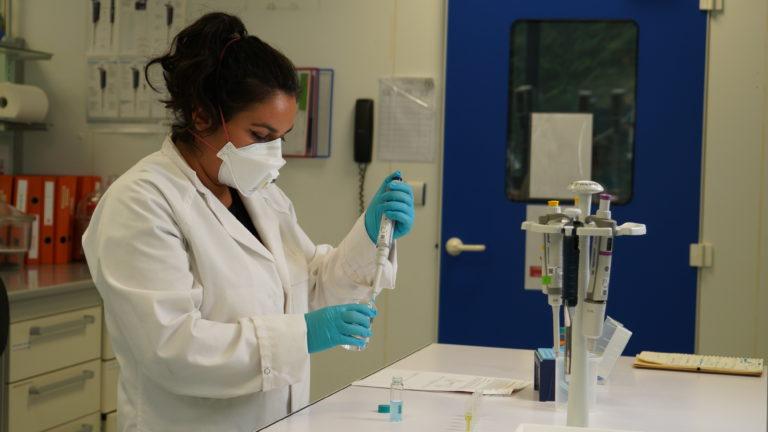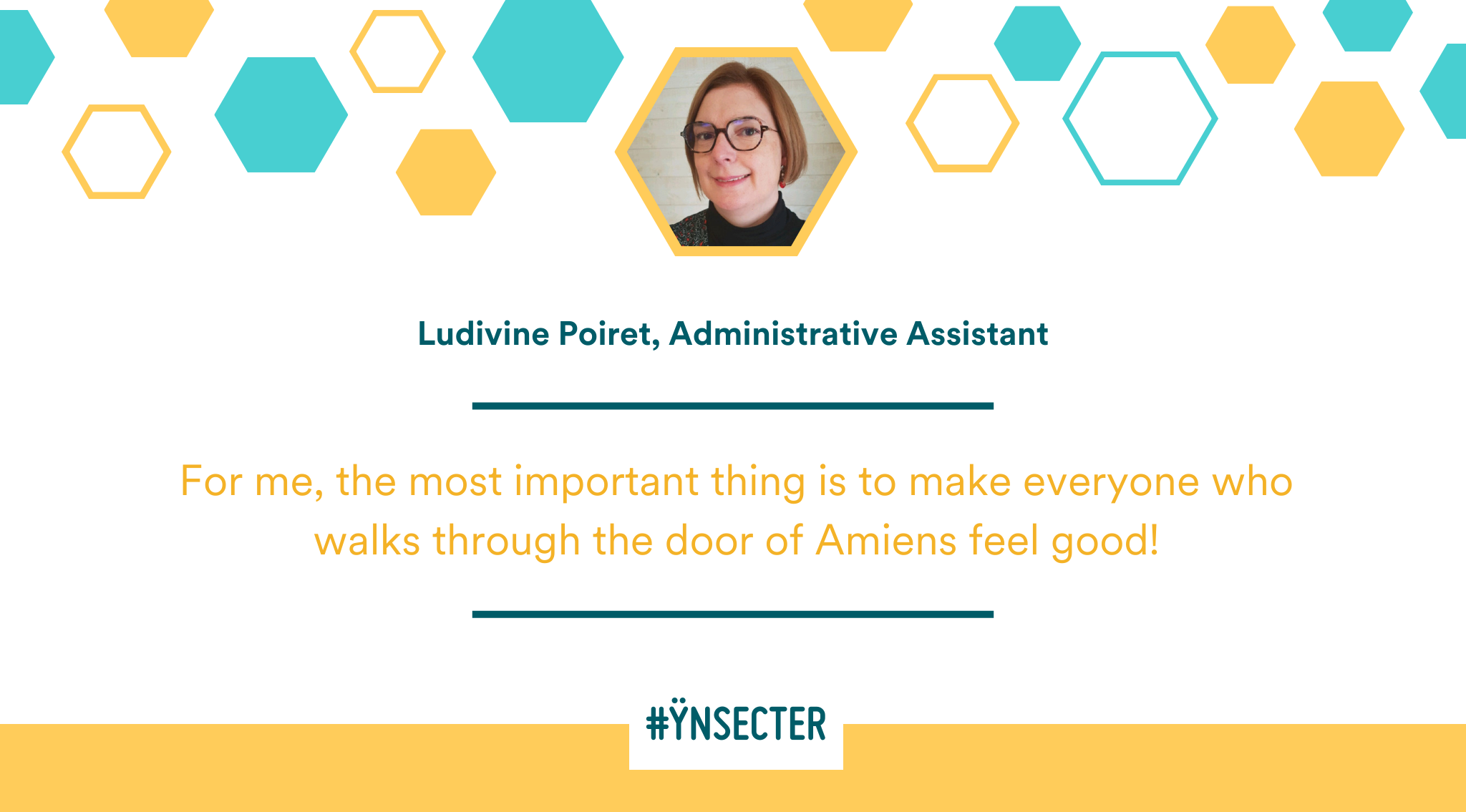Paris, January 26 2022: – Ÿnsect, a certified B Corp company and world leader in producing insect-based ingredients, announces the launch of ŸNFABRE, the first industrial genomic selection programme applied to mass insect farming. More specifically, the programme brings together a number of fields of expertise and powerful innovations in developing phenotyping tools (biological trait characterization) and genotyping tools (identification of genomic variation), mathematical models and industrial processes. The ŸNFABRE project looks set to enable the creation of pioneering units that will both select and multiply high-performing, resilient insect breeds and help further our understanding of insect biology.
A breakthrough programme resulting from combined expertise
At the meeting point between industry and R&D, the ŸNFABRE programme is supported by a consortium of companies established in their field, and a benchmark public laboratory. The CEA-Genoscope brings know-how in sequencing and genetics of mealworms to Ÿnsect’s leadership in the processing and breeding of insects; APREX Solutions their digital imaging/video analysis tools powered by artificial intelligence; and Thermo Fisher Scientific their high-throughput sequencing and genotyping.
The programme has received €4.34M in funding, as part of the call for “Competitiveness Structuring Projects” as part of the State’s Investments for the Future Policy (IFP) being managed by BPI. It was fostered by the support of the French poultry and aquaculture breeder’s union (SYSAAF) and received a twofold endorsement: from the Vitagora competitiveness hub, and the Agri-Food Sector Strategic Committee. This programme, a world first, enables real synergies for the dissemination and acceptance of emerging breakthroughs in the industry, within the scientific community, and among decision-makers and society generally.
ŸNFABRE represents a further development of various genetics projects that have already been run by Ÿnsect:
- Through selection, Ÿnsect has identified a strain of Buffalo worm allowing growth that is 25% faster than that of the original strain. This rapid growth increases the farms’ output as well as resource efficiency. This project will facilitate the identification of other improvements for a more efficient and economical use of resources.
- The assembly of the genome, published as “Chromosome-scale assembly of the yellow mealworm genome – A high-quality reference genome for Tenebrio molitor breeding and sustainable production” [1].
“The genome obtained by the CEA in collaboration with Ynsect, using cutting-edge methods, is of exceptional quality, with DNA sequence lengths almost as long as the chromosomes themselves. This is a major breakthrough for the sector, enabling us to begin unprecedented studies on the relationship between genes. We are at the start of a new science of this beetle and have little doubt that new properties of our insect, particularly in the fields of nutrition and health, are set to be discovered over the coming months and years” states Thomas Lefebvre, Ynsect’s Director R&D BioTech Innovations.
“The ŸNFABRE project deepens our knowledge of insect genetics, especially that of mealworms, an alternative and sustainable source of food protein. It will contribute to the excellence of the French insect cultivation, spearheaded by Ynsect. We are very happy to be implementing this substantial support from the Investments for the Future Programme”, affirms Ariane Voyatzakis, Head of Agrifoods, and Michel Daigney, Head of Chemicals and Environment within Bpifrance’s innovation department.
A sustainable, structural vision for the French entomoculture sector
The ŸNFABRE project aims to help provide tangible answers to food security issues and have a real environmental impact in line with French, European and international sustainability programmes (EU Green Deal, FOOD 2030, COP21, FAO SDGs).
“The recognition and funding received by this project have been unprecedented and underline the strategic importance of genetics in Ÿnsect’s development. With ŸNFABRE, we are taking part in a new breakthrough approach to bring about new cutting-edge technologies and advance scientific knowledge of insects. ŸNFABRE is also a major and structural programme that has the potential to help strengthen France and Ÿnsect’s leadership in insect breeding even as global competition is intensifying”, Ÿnsect’s CEO, Antoine Hubert, added.
This new approach led by Ÿnsect is expected to form part of the backbone in developing the proteins of the future. France is both a pioneer and a world economic and technological leader in insect breeding and processing, and this is driven by Ÿnsect. The ambition of the programme is to ensure priority and ownership of the best insect breeds for producing top-quality proteins for consumption, and to give these breeds a competitive advantage.
An effective industrial and economic network
Following on from cutting-edge research work, the first ŸNFABRE selection and multiplication unit is to be set up in France and operational by 2026. Each ŸNFABRE unit has the potential to supply 5 ŸnSTARS (Ÿnsect vertical production farms) with reproductive insects, and will provide for a +15% increase in productivity in the first year, whilst ensuring greater resistance to disease.
From the design phase, the project has the potential for 10 additional hires, just to ensure the smooth running of the programme. In line with projections, each YNFABRE built is forecasted to create nearly 40 jobs. The increase in productivity in ŸNFABRE industrial farms will also enable the creation of 50 additional direct jobs per farm, over a 10-year cooperation period. An estimated 150 further indirect jobs are also anticipated.
A balanced selection
Principles of genomic selection, based on the characterization of several biological traits (phenotyping) and on genome mapping (genotyping), lie at the heart of the ŸNFABRE programme. It places the project at the forefront of animal breeding technologies, and marks a clear progress from traditional programmes, focusing on the largest individuals reproduction by mass selection, but resulting in a deterioration of survival rates. The balanced selection focused on 4 complementary key traits of interest for insect farming which concern growth, reproduction, feed conversion and disease resistance.
[1] FABrique de REproducteur d’Ÿnsect – (Ÿnsect’s FActory of BREeders)
“Chromosome-scale assembly of the yellow mealworm genome – A high-quality reference genome for Tenebrio molitor breeding and sustainable production” by Evangelia Eleftherion, Jean-Marc Aury, Benoît Vacherie, Benjamin Istace, Caroline Belser, Benjamin Noel, Yannick Moret, Thierry Rigaud, Fabrice Berro, Sona Gasparian, Karine Labadie-Bretheau, Thomas Lefebvre, Mohammed-Amin Madou https://open-research-europe.ec.europa.eu/articles/1-94
About Ÿnsect
Ÿnsect is the world leader in the production of protein and natural insect fertilizers. Founded in 2011 in Paris, France, by both scientists and environmental activists, Next40 and B Corp-certified, the company processes insects into high-end, high-value ingredients for pets, fish, plants and humans. From its purpose-built state-of-the-art farms, Ÿnsect offers a long-term, sustainable, organic solution to accelerate protein and plant consumption. Ÿnsect uses pioneering proprietary technology covered by 341 patents across 41 patent families, to produce Molitor and Buffalo mealworms and worms on climate and biodiversity-friendly, vertical farms. Ÿnsect runs two production sites, one in Dole, France (commissioned 2016), one in the Netherlands (2017), and a third site, the world’s largest vertical farm, in Amiens in France, is currently under construction. The company, which employs 250 people, has raised around $ 425 million from major global investment funds, banks and public bodies and exports its products around the world.
PRESS CONTACTS:
Ÿnsect – Anaïs Maury, Director of Communication & Public Affairs, anais.maury@ynsect.com
Sopexa – Laurène Hug, Director of Social Media & Public Relations, lhug@sopexa.com





